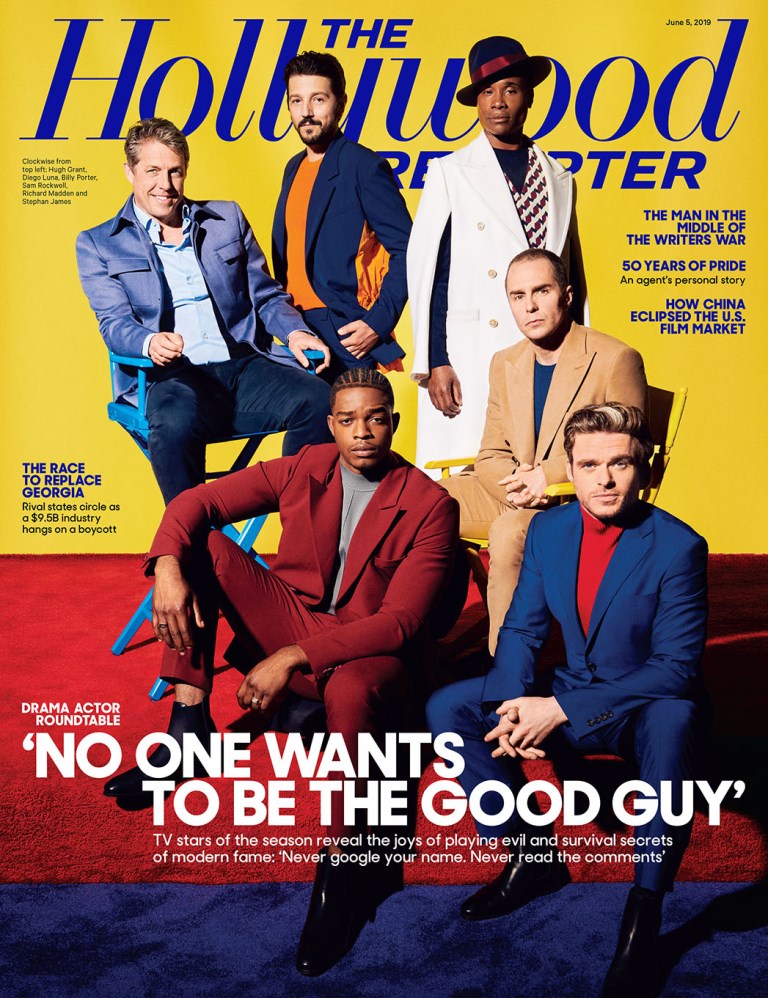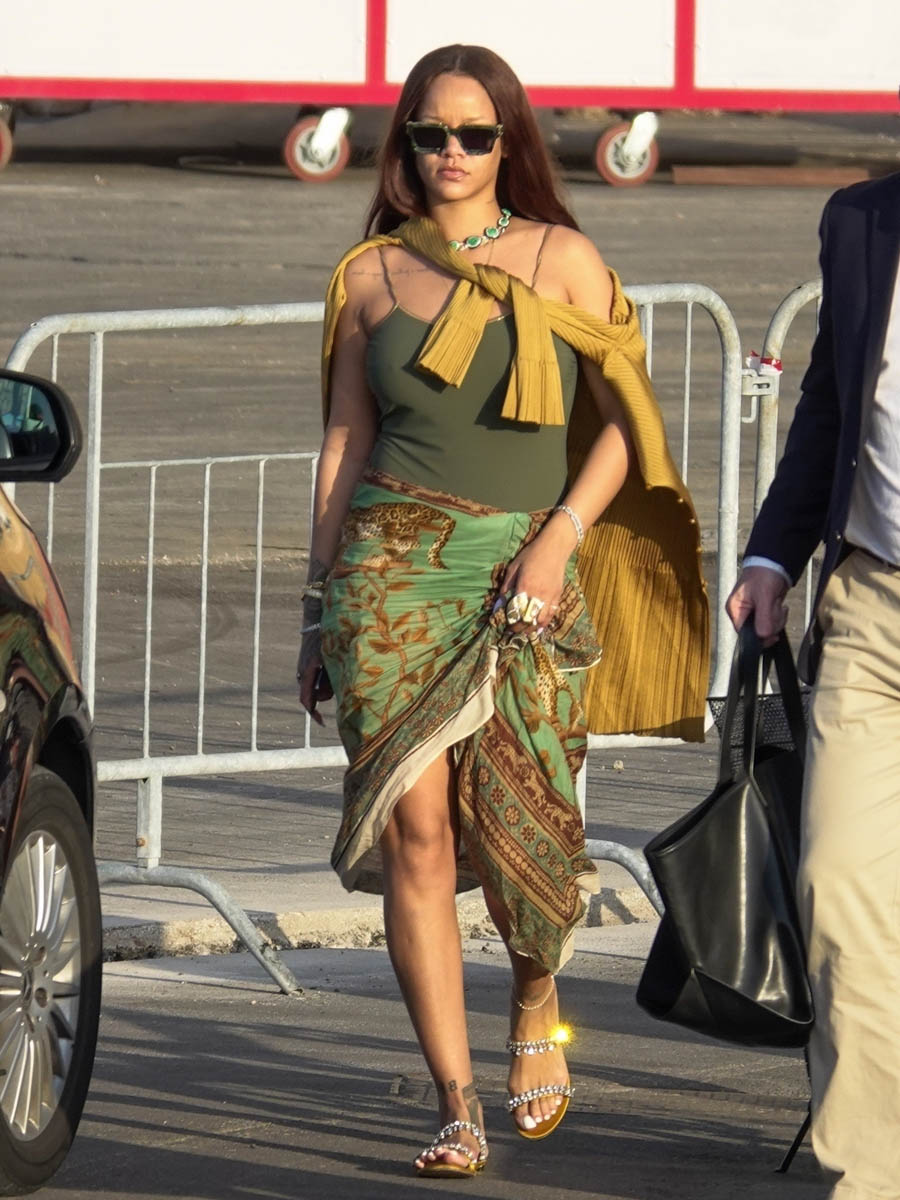Let Billy Porter host a truth-telling roundtable



Award season roundtable roulette continues, and this time, it’s the drama dudes up to bat. The roundtable features Stephan James (Homecoming), Diego Luna (Narcos), Richard Madden (Bodyguard), Billy Porter (Pose), Hugh Grant (A Very English Scandal), and Sam Rockwell (Fosse/Verdon). That’s a solid group, and just as with the comedy gals, I wish these guys were allowed to talk to one another, extemporaneously. There are a couple moments in this roundtable where Billy Porter builds off something someone else just said and opens the door to more in-depth, interesting conversation, and I wish it could go there and just follow Billy Porter down whatever tangent he wants. But alas, we must stick to The Agenda and feed everyone’s respective Emmy campaigns.
Where the comedy actress roundtable teased a conversation about compensation, the drama actors skirt around representation and privilege. Billy Porter speaks directly to his experience as an out black man auditioning for stereotypical roles, and Stephan James discusses his experience playing a character that is not defined by his race, and how freeing it was. Meanwhile, Hugh Grant sits quietly to the side, saying nothing. It’s not that I want to pick on Hugh Grant, who seems quite lovely, if a little curmudgeonly, but here are a few quotes from the interview.
Billy Porter: “It's a double layer, the layer of being a person of color in this industry then the layer of being a queen. […] If ‘flamboyant’ wasn't in the description of the character, no one would see me, ever, for anything, which wouldn't be so enraging if it went the other direction, but it doesn't.”
Stephan James: “…it's a responsibility that we have as artists to be responsible for the work that we're putting out into the world. […] And while I don't think it mattered so much that [the character] was black for the story, it matters in life that he is, you know? It matters for the kids watching it.”
Hugh Grant: “I am a big believer that our job is to entertain. It's not to practice some weird, quasi-religious experience. I see us as craftsmen along with the guy who does the lights and the guy who edits and the guy who pushes the dolly. Because if it's not that, I think it's a bit masturbatory.”
Can you spot the difference? It’s not that what Grant says is wrong or bad, but you can see how his privilege has influenced his view of his job. For Grant, it is just work, full stop. He does not have to concern himself with anything beyond the craft because he is representing the most represented group on the planet. But Porter and James clearly see their work as expressions of identity beyond the character on the page, identities it is important to have represented in the world. Diego Luna also touches on this, when he talks about Narcos, saying, “…it was interesting to jump into a project that has this reach, that can actually tell people, ‘This is our issue.’”
It would be interesting to follow through on that conversation. Not to call anyone out or make anyone feel bad, but to give this cohort of actors, speaking to one another across racial, sexual, and generational lines, a chance to compare and contrast their experiences, and how those experiences shaped the artists they’ve become. How much more interesting would it be to see these actors speak honestly to one another about their varying experiences and the role privilege played in it. Porter is trying to go there, speaking frankly about how his identity hindered his opportunities, at least in film and television, until Pose came along. And when James is politick about the kinds of roles offered to young black men in the industry, Porter jumps in, “Just say it: drugs and thugs.”
Similarly, Porter calls out straight actors playing queer roles, and how that double-dipping of parts limits his opportunities as a queer actor even further. He says, “…straight men playing gay, everybody wants to give them an award: ‘Thank you for gracing us with your straight presence.’ That gets tiresome. So here I sit, I can't get the gay parts, I can't get the straight parts.” Sitting at the table with him are Hugh Grant, an Emmy contender for portraying a closeted politician, and Richard Madden, currently in theaters playing Elton John’s business manager and lover. Grant looks a little sheepish when Porter is speaking, but once again, there is no follow-up. It’s so frustrating! You have at the very same table a straight actor to whom “everybody wants to give an award” for playing gay. Ask him about it! Turn to Grant and ask, Did you consider turning down this role because maybe a gay actor should play it? How does hearing this from Billy make you feel, given the success playing this role is bringing you?
We’ve been having this ongoing conversation about representation, and yet when given a prime opportunity to discuss representation with actors who have been both hurt by and benefitted from the status quo, it goes nowhere. These roundtables are SO FRUSTRATING. They are such incredible missed opportunities to let real conversations happen about some of the most vital topics in the entertainment industry. Everyone is charming and the soundbites are all good, so they retain this surface-level interest, but it is so hard to see past the margins, where far more interesting conversations are happening. I guess what I’d really like to see is a roundtable in which Billy Porter just tells the truth at people and then they must reckon with it.

